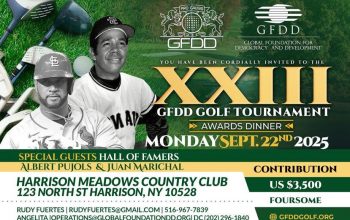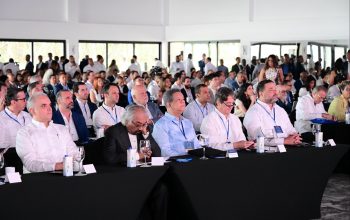news
“My Memories of Fidel”, an article by Dr. Leonel Fernández
December 5, 2016
I met Fidel Castro, the leader of the Cuban Revolution, during the Sixth Iberoamerican Summit in Chile in November of 1996, a few months after assuming office as Dominican head of state.
On that occasion I had the privilege of chatting at his side for nearly three hours on the bus transporting us from Santiago de Chile to Viña del Mar, where the meeting of Latin American heads of state and government was being held.
During those three
hours we of course talked about a great deal of subjects.
What I found most attention-grabbing from the first moment was his curiosity about everything. He seemed insatiable. He had a vital need to be informed about the most minimal details of everything that was happening.
Fidel always conversed by asking questions. Years later I would hear that this was his way of gauging the intellect of the person with whom he was speaking. In my particular case, I
recall that he subjected me to an onslaught so intense that I could only wriggle free by either avoiding the question or subtly changing the subject.
He asked me, for example, about how much pork, eggs, and chicken – as well as how many hundred-pound sacks of rice – the Dominican Republic managed to produce each year. He was interested in finding out how many tons of ferronickel we exported, and also why we had stopped mining bauxite.
The
examination to which he subjected me was of the sort to make one’s palms clammy, especially for a young man recently arrived to his country’s highest office. I assume he noticed my nerves, took pity on me, and softened his verbal bombardment.
Several Summits
In that summit in Valparaíso we also discussed personal subjects. He told me about his family, about his kids. He referred to one who, according to him, was very
naughty.
He told me that besides being a revolutionary he was a rebel, and added with a certain humorous tone: “A rebel with a dubious cause.”
Then he smiled.
We talked about Dominican, Cuban, and Latin American politics.
He spoke to me of his admiration for Juan Bosch, whom he’d met during the training sessions for the Cayo Confites expedition in 1947, as well as other Dominican exiles
of that period.
With regard to Cuba he made reference to the special period the state had been going through since the dissolution of the Soviet Union. He spoke of the heroism, resilience, and dignity of the Cuban people. He noted that nonetheless, despite all the difficulties, they would survive.
In his appearance at the summit, he explained how neoliberalism would unleash several crises at the global level, as had already happened with the crises in
the Mexican peso, Russian ruble, and Brazilian real. Throughout his address he was not just brilliant but prophetic.
I vividly recall how after lunch, in a pleasant and amusing after-dinner chat, the Spanish president José María Aznar took off his tie and gave it to the Cuban leader so that he could appreciate a good capitalist necktie.
Fidel accepted the gift with pleasure.
But then he took off his own and gave it to Aznar so that he
could try out a good socialist necktie. Everyone there laughed out loud in enjoyment of his sly joke.
I would meet Fidel again at the Margarita Island Summit the following year in Venezuela and in the Havana Summit in Cuba in 1999. On Margarita Island I recall how once upon leaving his room in the hotel where we were staying, Dr. Abel Rodríguez del Orbe and I warned that the Comandante didn’t appear well. He looked worn out, as if he were
ill.
Then we found out that during that special period he had been clocking long hours of work. Sometimes the dawn would catch him right in the middle of meetings. It’s possible that it was these tireless efforts that wore down his health and gave rise to his later debilitation.
The Havana Summit included a discussion of the international financing situation in a globalized economy. Once again the hero of the Sierra Maestra captivated his
audience’s attention. His opinions on the instability of the global economy seemed novel precisely in that period when the storm of the Asian crisis was being weathered.
It was during that Iberoamerican Summit in Havana that I met António Guterres, recently elected as Secretary General of the United Nations.
At that time Guterres was prime minister of Portugal, and his image was seared into my memory by the respectful but audacious and
intelligent dialogue he held with the Comandante of the Cuban Revolution in the presence of other participating leaders.
In all these encounters Fidel was always a seductive character. He was preceded by a mythic and legendary aura.
But what was most impactful was the force of his reasoning, the passion behind each word, and his immense persuasive capacity.
In Santo Domingo and Havana
As a result of diplomatic relations being formally reestablished between Cuba and the Dominican Republic, Fidel Castro made an official state visit to our country. There he witnessed all the manifestations of support and affection that our people had always held for him.
During his visit, Fidel went to Baní to pay his respects to the Generalissimo Máximo Gómez, the pride of the fight for Cuban independence.
But it was also an opportunity to hear him
speak directly of his own long trajectory throughout history. On Dominican soil he spoke to us of how he had run as a legislative candidate for the province of Havana in the elections of 1952.
He revealed that those aspirations were frustrated by Batista’s coup d’état.
From that moment his revolutionary struggle would begin to be waged.
That was the seed of the 1953 attack on the Moncada Barracks.
Later came the Granma voyage, which began as a great tragedy, when 70 of the 82 expedition members died within a few days of disembarking on Cuban territory.
Raúl Castro has recounted to us how when Fidel confirmed that 12 of his companions had survived, he spoke these words: “We have triumphed.”
Naturally, Raúl thought his brother was mad. But he wasn’t. In fact, it was a characteristic that the leader of the
Cuban Revolution would put to the test on different opportunities: that of turning adversity into victory.
He demonstrated this in the Sierra Maestra when, alongside Raúl, Che Guevara, and Camilo Cienfuegos, he created the Rebel Army that would victoriously enter Havana on January 1, 1959.
And likewise for the Girón Beach or Bay of Pigs invasion, for the Missile Crisis of 1962, for the Mariel Boatlift, for the migration of the
balseros (rafters), or for the case of the boy Elián González.
In each of these cases, starting from a disadvantaged situation, Fidel always managed to transform them into great victories. Hence the distinctiveness of his leadership, which was based on his talent, his status as a visionary; and his noteworthy virtues as a tactician and strategist.
But after his first visit to the Dominican Republic, and after Hurricane Georges in
1998, he called me. With a map in hand, we talked and tried to follow the full path of that atmospheric phenomenon.
It was impressive to see the meticulous way he paid attention to detail. He wanted to know what had happened in each affected town. Our government’s reaction to the events. How Cuba could offer its solidarity and support.
I would meet up with Fidel again several times after his second visit to our country to participate in a
summit for the Association of Caribbean States (AEC) in 1999. The last time was in his home in Havana, when we spoke of Colonel Francisco Alberto Caamaño Deñó, of the 1965 April Revolution, and of the guerrillas at Caracoles Beach.
It was clear that he felt deep respect and admiration for our April Hero. He made that obvious at several points in the conversation.
It was of course a great experience to have been able to spend time with Fidel at varying
times and circumstances.
He was an outstanding figure in which all the qualities of a leader could be summed up. Che Guevara called him “a telluric force.” In any case, he was the most universal and important personality from Latin America in the 20th century.
In short: a giant of history.
Related Link: http://leonelfernandez.com/mis-recuerdos-de-fidel/






